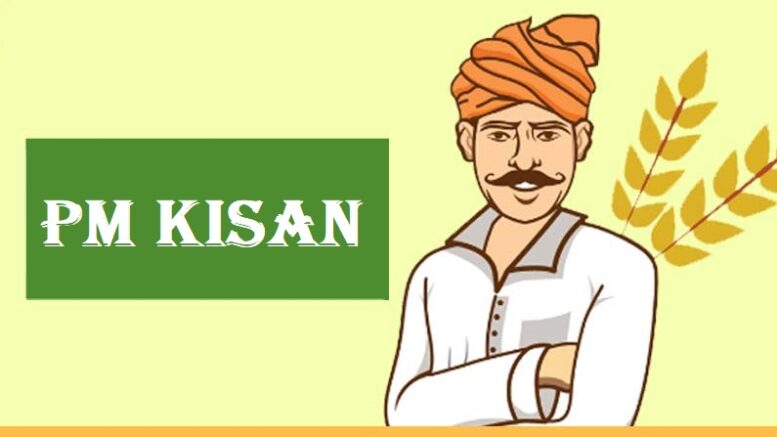The PM Kisan Samman Nidhi Yojana is a groundbreaking initiative by the Government of India aimed at providing financial support to the country’s small and marginal farmers. Launched on February 24, 2019, by Prime Minister Narendra Modi, this scheme forms a part of the government’s efforts to ensure the economic welfare of farmers who struggle with the vagaries of agriculture and financial instability. By addressing their monetary needs directly, the scheme aspires to boost agricultural productivity and secure the livelihoods of millions of farmers across India.
An Overview of PM Kisan Samman Nidhi Yojana
The primary objective of the PM Kisan Samman Nidhi Yojana is to provide income support to farmers. Under the scheme, eligible farmers receive a financial benefit of ₹6,000 per year. This amount is distributed in three equal installments of ₹2,000 each, directly credited to the farmers’ bank accounts every four months.
Implementation and Reach
With a budget allocation exceeding ₹75,000 crore annually, PM Kisan Samman Nidhi Yojana has achieved substantial reach since its implementation. The scheme primarily targets about 125 million small and marginal farmers, owning up to 2 hectares of agricultural land. As of the current estimates, millions of farmers across various states have benefited from timely cash transfers, ensuring a steady flow of income that helps in procuring agricultural inputs and meeting basic needs.
Impact on Farmers’ Lives
The infusion of ₹6,000 annually helps farmers in numerous ways:
– Purchasing Inputs: The direct benefit allows farmers to buy seeds, fertilizers, and other essential agricultural inputs without resorting to high-interest loans. This support is especially crucial during the sowing season, leading to increased agricultural productivity.
– Debt Relief: By supplementing income, the scheme plays a critical role in reducing farmers’ reliance on credit, thus alleviating the pressure of debt that many farmers face.
– Household Expenses: For small farmers, even a modest amount such as ₹6,000 can make a significant difference in managing day-to-day household expenses, contributing towards a more stable financial condition.
Challenges and Criticisms
While the PM Kisan Samman Nidhi Yojana has been praised for its direct income support, it faces some challenges and criticisms:
– Identification and Exclusion Errors: Ensuring that the aid reaches only the eligible farmers has been difficult. Some farmers who qualify have reported not receiving the benefits due to technical glitches or identification errors.
– Amount Insufficiency: Critics argue that ₹6,000 per year is insufficient to bring about substantial economic improvement considering the rising costs of agricultural inputs.
– Exclusion of Tenant Farmers: The scheme currently does not cover tenant farmers who do not own land but cultivate leased lands and form a significant portion of Indian agriculture.
Future Prospects and Improvements
Recognizing these challenges, the government continues to work on improving the delivery mechanism and expanding coverage. Efforts are underway to integrate advanced technologies to streamline identification processes and ensure that the benefits reach the intended recipients efficiently.
Additionally, there are calls for increasing the payment amounts, potentially indexing the benefit to inflation, which would make the scheme more impactful in real terms.
The Economic Perspective
From an economic standpoint, the PM Kisan Samman Nidhi Yojana forms part of the broader strategy of direct cash transfers, bypassing bureaucratic layers that have historically led to delays and corruption. With approximately ₹90,000 crore disbursed so far, the scheme reflects a significant fiscal commitment to rural welfare.
Understanding Kisan Vikas Patra: A Secure Savings Option
Kisan Vikas Patra (KVP) is a government-backed savings scheme designed to encourage long-term investments. Ideal for risk-averse investors, KVP doubles the invested amount over a fixed period, currently set at 124 months (10 years and 4 months), depending on prevailing interest rates. With a minimum investment of ₹1,000 and no upper limit, it caters to all income groups. The scheme offers guaranteed returns and can be easily transferred between individuals. KVP certificates are available at post offices and select banks, providing a secure, low-risk avenue for wealth accumulation. It’s a trusted choice for achieving financial goals steadily.
Conclusion
The PM Kisan Samman Nidhi Yojana represents a crucial lifeline to India’s farmers, who form the backbone of the Indian economy. While the scheme has several challenges, its impact is irrefutable, providing much-needed financial support and fostering a more sustainable future for Indian agriculture.
Summary
The PM Kisan Samman Nidhi Yojana is an essential government initiative that provides direct financial assistance to small and marginal farmers in India, intending to foster agricultural sustainability and improve farmers’ livelihoods. Launched in 2019, it offers ₹6,000 annually to eligible farmers in three installments, enabling them to manage agricultural inputs and basic expenses. While the scheme’s simplicity and direct approach have brought significant benefits, challenges such as identifying beneficiaries and the insufficiency of the amount persist. Continued improvements and potential increase in payments are necessary to enhance its effectiveness. Overall, it forms a critical component of India’s efforts to secure the socio-economic future of its farming community.
Disclaimer:
Please note that while the PM Kisan Samman Nidhi Yojana provides direct benefits to farmers, individuals considering other investment opportunities in the Indian financial market should thoroughly evaluate all associated risks and rewards before proceeding.

Be the first to comment on "PM Kisan Samman Nidhi Yojana: Ensuring a Sustainable Future for Farmers"